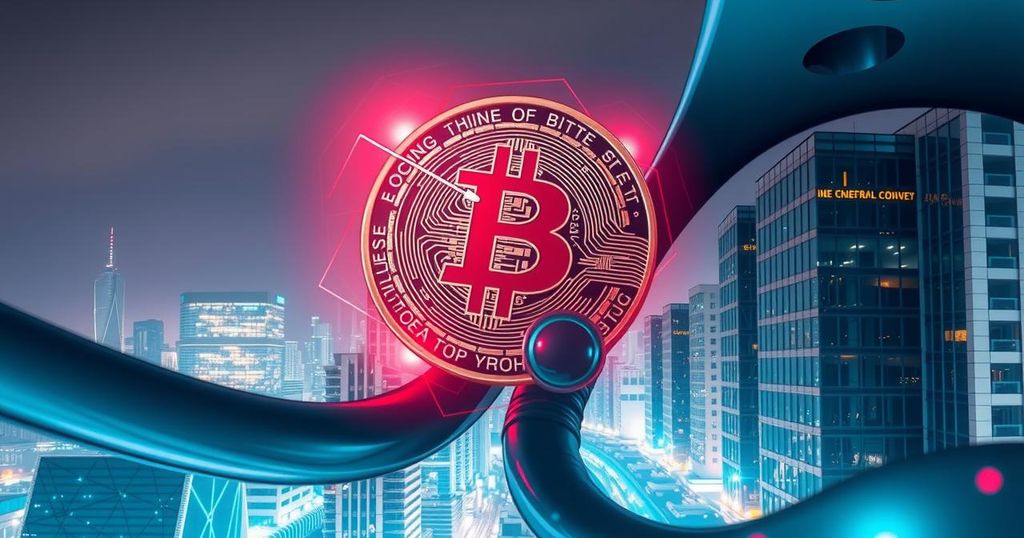Memecoin Surge: Barstool Sports, BNB Chain, and CAR Join the Craze

This weekend witnessed a resurgence in the memecoin sector, with BARSTOOL SPORTS, BNB CHAIN, and the CENTRAL AFRICAN REPUBLIC issuing notable tokens. The BNB Chain’s TST token soared to a $300 million market cap, while Barstool’s JAILSTOOL token peaked over $200 million. The CAR token also launched, aiming at national development with a market cap of approximately $527 million shortly thereafter.
Recent developments in the memecoin landscape have seen participation from notable entities including Barstool Sports, BNB Chain, and even the Central African Republic (CAR). The BNB Chain launched the TST token, which quickly reached a market capitalization of $300 million after endorsements from Binance founder Changpeng Zhao. Meanwhile, David Portnoy of Barstool Sports drew attention for promoting the JAILSTOOL token, which peaked at over $200 million before stabilizing around $78 million. Further spotlight was cast on CAR, which issued its own token, CAR, aiming to bolster national visibility and development, achieving a market cap of approximately $527 million shortly after its launch.
The TST token was initially presented as a part of a community tutorial before its explosive growth, facilitated by Zhao’s promotion via social media. Despite Zhao’s attempts to clarify that TST was never officially endorsed by Binance, the token’s visibility increased significantly, leading to a Binance listing. Zhao remarked on the challenges of investing in tokens with tangible value and highlighted the appeal and cultural significance of memecoins to traders seeking entertainment and potential profits.
In another significant move, David Portnoy leveraged his substantial social media presence to enter the memecoin market with the JAILSTOOL token. After witnessing a huge surge to a $200 million market cap, Portnoy humorously engaged with his followers regarding the risks of such investments, hinting at a potential pump-and-dump scheme. This activity drew scrutiny, with accusations of misleading his following, reflecting the precarious nature of the current memecoin environment.
Adding further intrigue to the weekend’s events, the Central African Republic announced the issuance of its CAR token, which was said to support national initiatives and improve the country’s global standing. Following the launch, the token’s market cap surged rapidly, drawing comparisons to the nation’s relatively modest GDP. However, doubts emerged regarding the credibility of CAR’s initiative, as the project’s domain was temporarily taken down, and questions arose about the authenticity of its promotion.
Despite these concerns, verification efforts were initiated to validate the token’s legitimacy and connection to the presidency. Industry observers expressed skepticism yet continued to explore the framework surrounding the token’s issuance, illustrating the dynamic and unpredictable nature of the cryptocurrency landscape amid ongoing memecoin activities.
The memecoin trend has recently gained traction across various regions, showcasing a blend of entertainment and investment speculation in the cryptocurrency space. With figures such as Changpeng Zhao and David Portnoy involved, the realm of memecoins illustrates the cultural significance and commercial potential associated with viral tokens. Moreover, the interest from national entities like the Central African Republic reflects a broader acceptance and exploration of cryptocurrency as a tool for economic development and visibility.
In summary, the memecoin sector is experiencing an unprecedented surge characterized by involvement from prominent individuals and even nations. The rapid ascendancy of tokens like TST and JAILSTOOL reflects the speculative and playful nature of the market, while the Central African Republic’s initiative signifies an emerging recognition of cryptocurrency’s potential in national agendas. However, scrutiny remains essential, as the volatility of such investments poses significant risks for participants.
Original Source: www.coindesk.com








